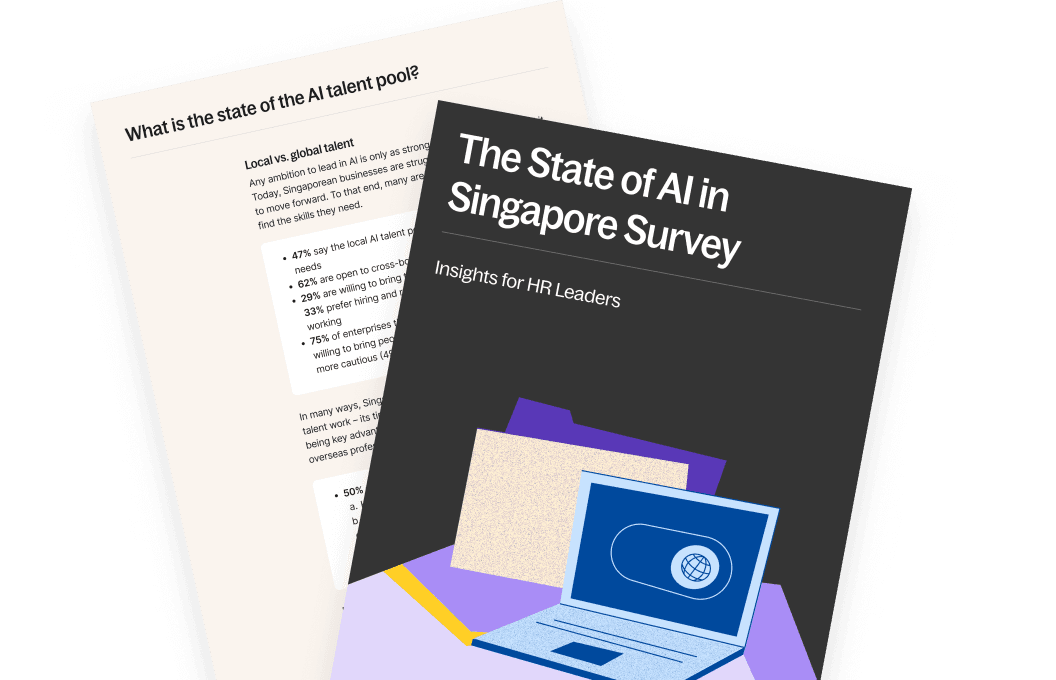Report
The State of AI in Singapore Survey
AI

Get the resource for free
Key takeaways
- Despite an atmosphere of optimism and enthusiasm, 68% of Singaporean businesses are still in the early stages of AI adoption.
- 47% say the local talent pool is unable to meet demand, and only 20% have a dedicated budget for reskilling internally, causing a skills shortage.
- HR leaders are uniquely positioned to become key drivers of AI adoption by shaping career paths for AI talent and building trust through ethical AI practices.
With forward-thinking government initiatives and a well-earned reputation for adopting new technologies, it’s easy to assume Singapore is fully prepared to lead in AI. With this survey, we set out to answer the question, ‘What is the state of AI adoption in Singapore?’ What we found is a more nuanced story.
Despite enthusiasm, adoption remains relatively low. While businesses report that the government is a key driver for adoption, less than 5% are actively engaging with its AI initiatives. To build an AI-forward future for Singapore, business leaders, HR professionals, and government officials will have to overcome these contradictions.
Who will benefit from this report?
- Business leaders in Singapore looking to unlock the potential of AI and gain a competitive advantage.
- HR professionals and talent managers seeking to understand the state of the talent pool and overcome recruitment blockers.
FAQs
Why is Singapore well-positioned to lead in AI?
Singapore has strong government support, advanced digital infrastructure, and a robust talent development ecosystem that fosters innovation in AI. Its strategic location as a gateway to Southeast Asia and trusted regulatory environment also attracts global AI investments and partnerships.
What are the benefits of adopting AI?
Adopting AI enhances efficiency, decision-making, and innovation across industries. It also enables businesses to stay competitive by automating tasks and uncovering data-driven insights.
What is HR’s role in driving responsible AI adoption?
HR plays a key role in shaping ethical AI practices through workforce upskilling, inclusive hiring, and policy enforcement. It ensures AI tools are used fairly, transparently, and aligned with organizational values.
What makes AI practices ethical?
Ethical AI practices prioritize fairness, transparency, accountability, and respect for privacy and human rights. They ensure that AI systems are designed and used in ways that avoid bias, explain decisions clearly, and protect individuals from harm. It also ensures that AI only informs human decision-making, rather than being given the authority to make decisions.